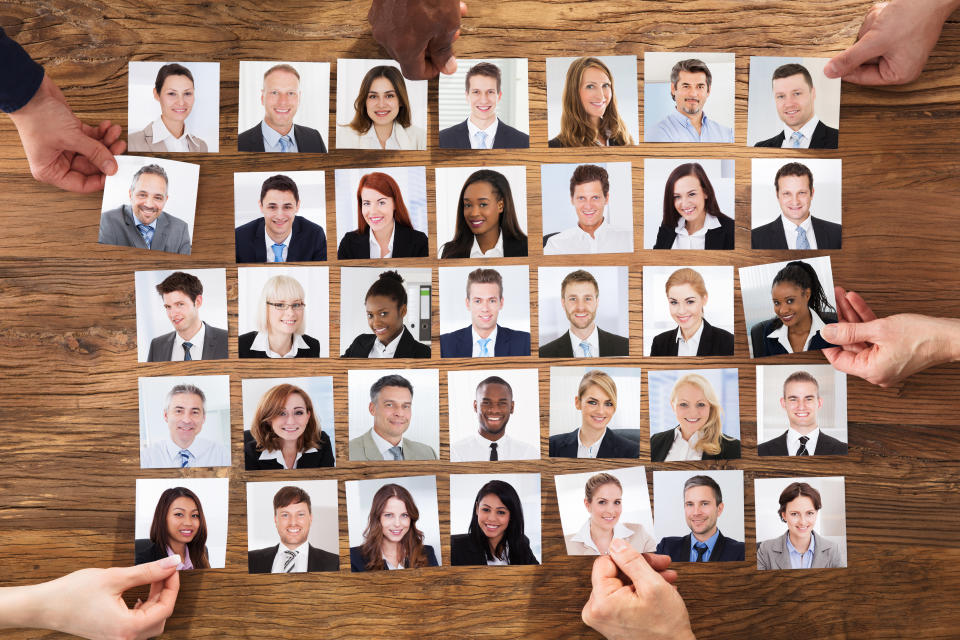How cultural bias affects your chances in a job interview

Winning over a potential employer in a job interview takes more than just experience and an impressive CV. You want them to recognise your skills and abilities, but also warm to you personally — and see that you are a good fit for both the job and the company.
It can be hard to strike the right balance between calm, excited and interested during an interview, particularly when you’re feeling nervous. But according to research, the emotions employers value when meeting job candidates also vary across different cultures.
To find out more, Stanford psychology researchers Professor Jeanne Tsai and Lucy Zhang Bencharit, now an assistant professor at California Polytechnic State University, carried out five studies in different workplace settings.
READ MORE: Why women need to stop apologising at work
In four of the experiments, the researchers compared European Americans and Asian Americans living in the United States with Chinese living in Hong Kong
In one study, Tsai and Bencharit told participants to imagine they were hiring an intern and to highlight the qualities the ideal candidate should have. The researchers found that European Americans wanted applicants to show excitement, but Hong Kong Chinese preferred calm. Asian Americans fell somewhere in between.
Subconsciously, these cultural preferences of emotion lead to hiring biases among employers.
“Cultural bias is the tendency to judge people by standards inherent to one's own culture which may lead to unconscious or implicit bias,” explains Carina Cortez, Glassdoor’s chief people officer.
“Because these biases support stereotypes of cultures this can unintentionally lead to ethnic or racial profiling. At its worst, this leads to prejudice, rather than drawing conclusions about a person based on merit.”
Unconscious bias can have a problematic affect on our judgement and cause us to make decisions in favour of one person or group to the detriment of others, Cortez adds.
“To put it another way, it’s easy to like someone who looks and acts like you,” she says. “As a candidate, this could mean that if you do not share similar interests, experiences and backgrounds with the team you are looking to join, you could be at a distinct disadvantage in the hiring process.”
Similarly, bias can play a role at the beginning of the recruitment process when a hiring manager first reviews a resume too. Rather than assessing someone on their skills, abilities and achievements, they may well make a decision based on their name, where they are from or where they went to school or university.
READ MORE: Why do women of colour pay an 'emotional tax' at work?
So what can employers do to tackle cultural bias when hiring?
“Rework your job descriptions to avoid, for example, stereotypically gendered words so that you can avoid overuse of masculine or feminine language,” Cortez says. “Provide your team with awareness training to allow employees to recognise that everyone possesses unconscious bias to a certain extent and identify their own.”
It can also help to create a systematic process for reviewing applications and resumes that blanks out demographic characteristics — and focuses on specific qualifications and talents instead.
When interviewing someone, ask standardised, skill-based questions that provide each candidate with a fair chance to stand out. “Compare candidates on skill and merit rather than traits that can cloud your judgement, Cortez adds.
“Do not be too quick to judge and falsely assume things about a person without knowing their full story. Ask your hiring team to submit their individual opinions about a candidate separate from one another after an interview ends, to avoid individuals swaying their opinion to match the opinion of the majority.”
READ MORE: Can you ever 'fix' a broken culture at work?
And to avoid always hiring people that are simply likeable and make a good first impression, rate candidates on their likeability and give it a score, allowing you to compare that factor with other factors such as skills.
“Ultimately, studies have shown that having diverse and inclusive teams leads to better products, innovations, and revenue,” Cortez says. “The ability to be aware of and manage your own cultural and unconscious biases is but the first step in creating a culture of belonging in your work environment.”

 Yahoo Finance
Yahoo Finance 
